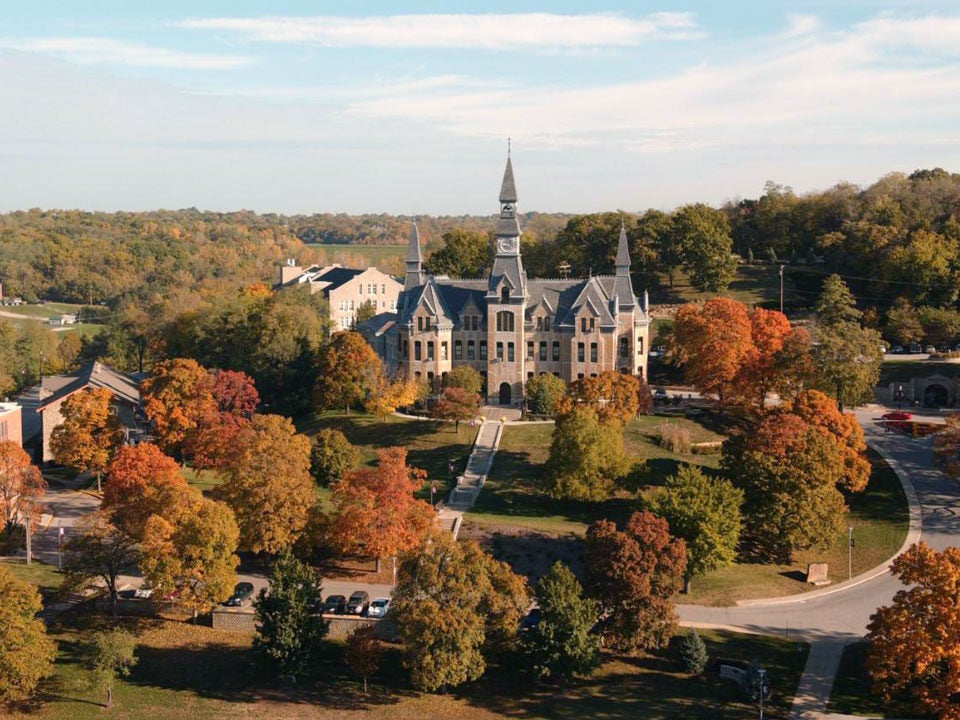On-Campus
Program Available
Bachelor's
Program Type
Total Credits
120
Affordability
Private School Education At State School Prices
Program Available
Program Type
120
Private School Education At State School Prices
A biology degree provides a strong foundation in biological sciences while allowing students to tailor their education with a complementary minor, such as global information systems or global studies, to match their career goals. This degree is ideal for those who wish to enter the workforce and make an impact directly after graduation in fields such as research, education, pharmaceutical sales, or quality control. With small class sizes and a transformative focus on scientific communication and literature, students receive personalized guidance and practical skills that give them a competitive edge. Park University’s Bachelor of Arts in Biology also supports students pursuing graduate or medical school through its well-rounded, holistic curriculum and advising resources.
Park University offers a transparent and student-focused approach to tuition and financial aid. Our tuition structure is designed to be competitive and manageable, and our financial aid counselors are available to guide you through every step of the process. From understanding your cost breakdown to exploring funding options, we ensure that financial planning is clear, personalized, and aligned with your educational journey.
Ready to take the next step in your education? Park University welcomes applicants with a high school diploma or equivalent who meet our undergraduate admission standards. Bachelor’s degrees require 120 credit hours, including coursework tailored to your major and core academic skills. To graduate, you’ll need to maintain a 2.0 GPA in your major and complete at least 30 credit hours at Park to meet the residency requirements, 15 of which must be earned in the major core. Whether you’re starting fresh or transferring in, we’re here to help you build a strong foundation for your future.
Visit Admissions Policies and Procedures to learn more about admission requirements at Park University.

*General salary and employment outcomes vary by geographic area, previous work experience, education and opportunities for employment that are outside of Park University’s Control. The labor market and average salary range can be explored further at the U.S. Bureau of Labor and Statistics.
A biology degree offers a real, transformative education that opens the door to purposeful careers in healthcare, research, environmental science, biotechnology, and education. Graduates often work as lab technicians, wildlife biologists, research assistants, or pursue advanced degrees for roles in medicine, dentistry, or veterinary science.
Yes. Students in Park’s bachelor’s degree in biology program can participate in career-ready field-based research projects focused on ecology, conservation, and environmental biology. These experiences enable students to collect and analyze data in natural settings, preparing them for real-world careers in field biology, environmental consulting, or graduate studies in the life sciences.
The BA in biology program’s holistic, interdisciplinary structure makes it ideal for students interested in science communication, public health, or policy. With coursework that blends biology with the durable skills developed in the social sciences and humanities, graduates are equipped to work in roles such as health education specialists, environmental advocates, or science writers.
Absolutely. Park University encourages students to customize their academic path by adding minors in complementary fields, such as chemistry, psychology, or public administration. This flexibility enables biology majors to tailor their degree to specific career goals, such as medical school, behavioral science, or health policy, preparing them to make a meaningful impact in the world on their own terms.
Class Start Dates: Term Dates